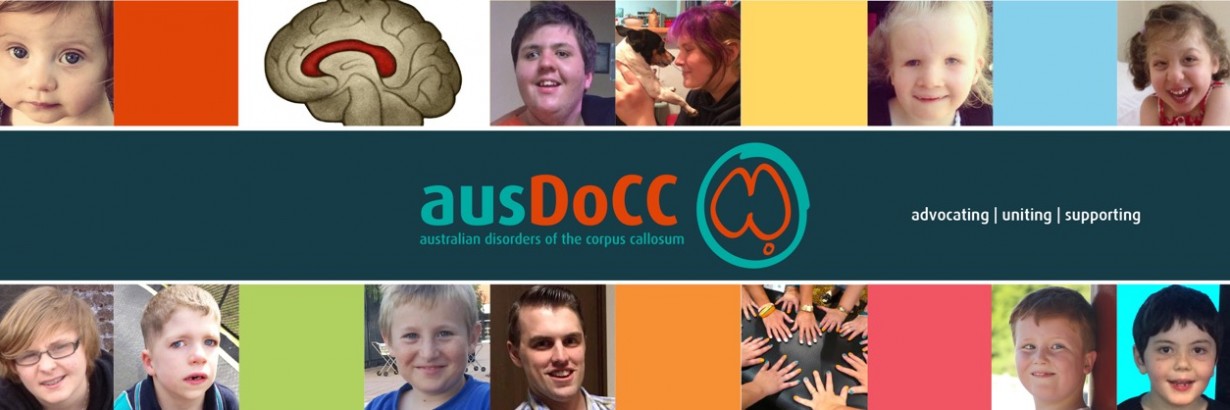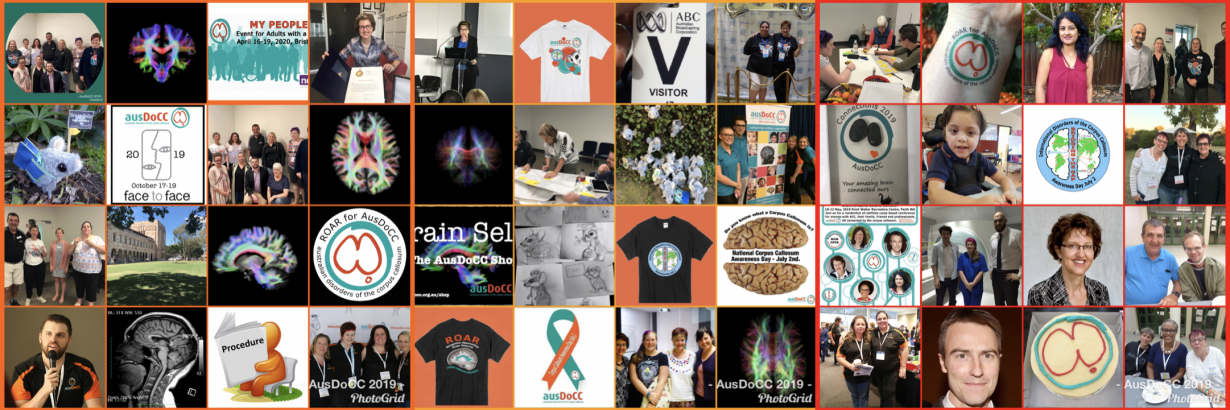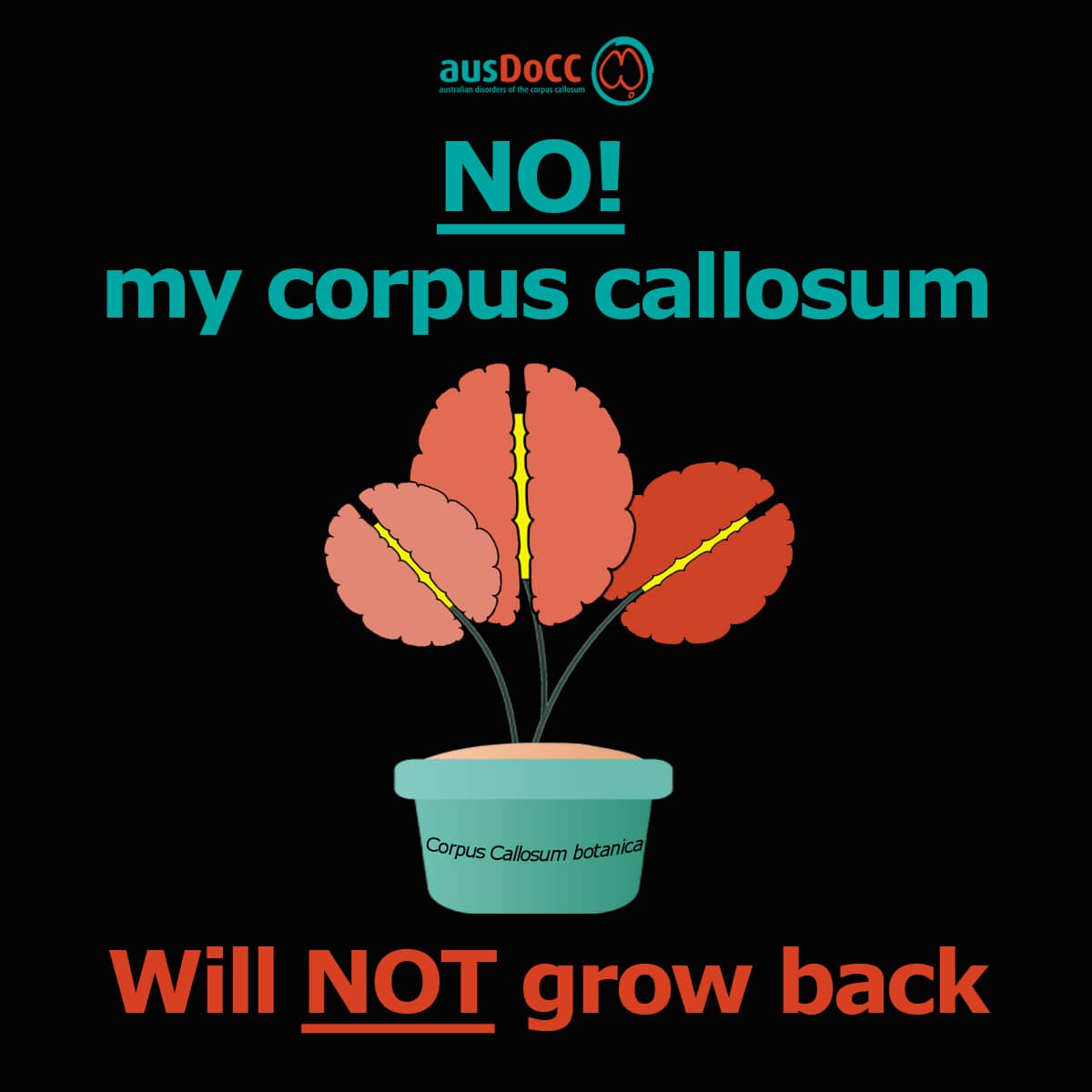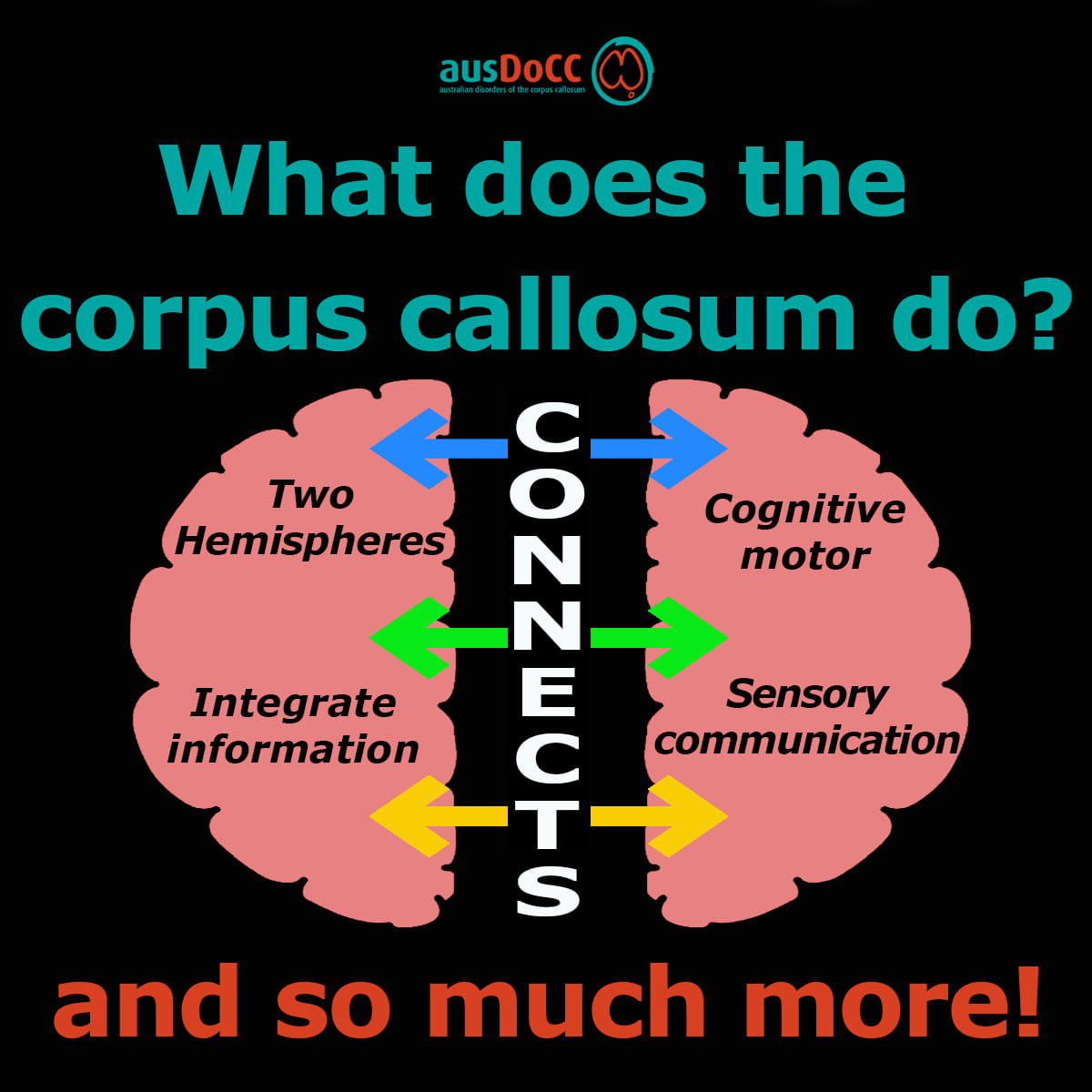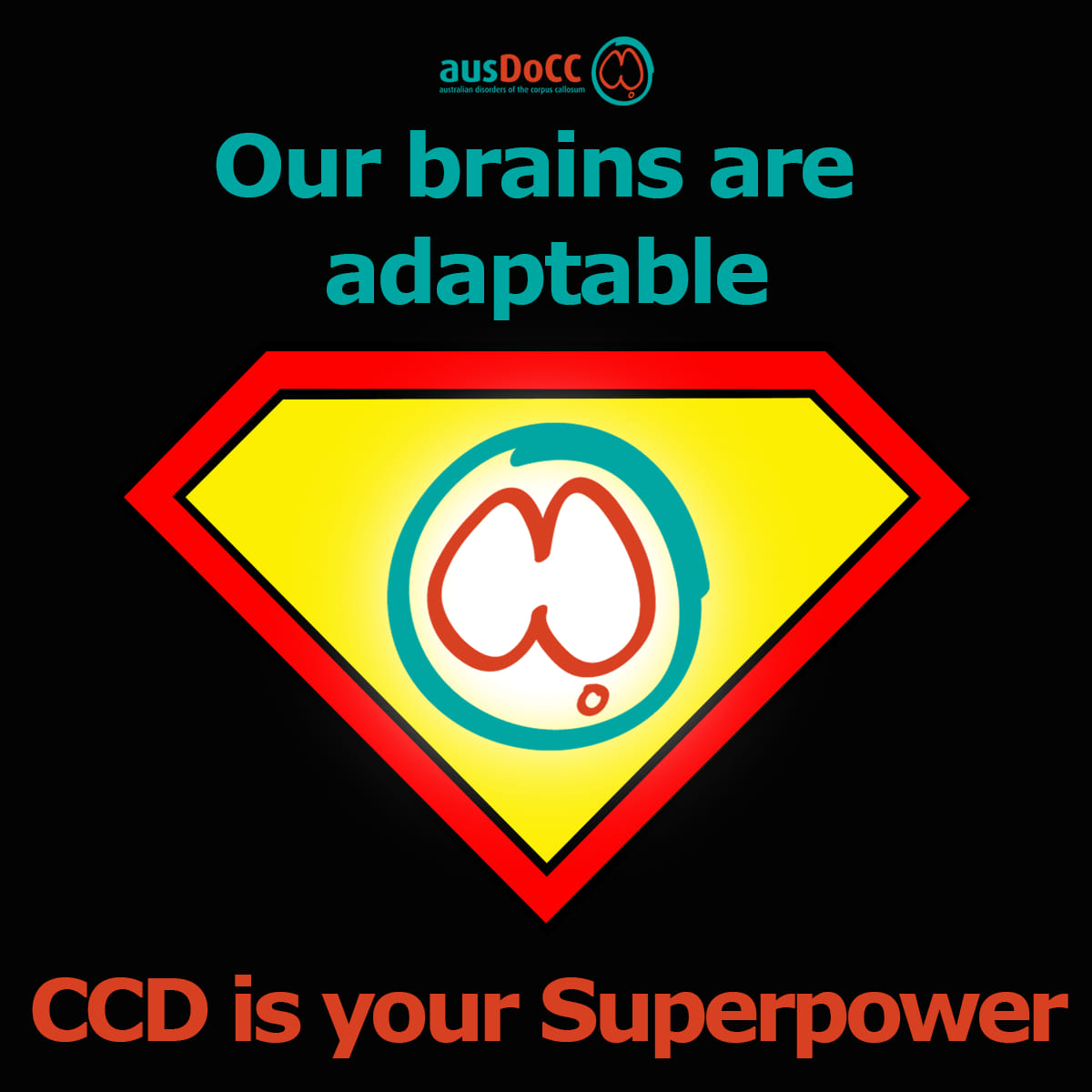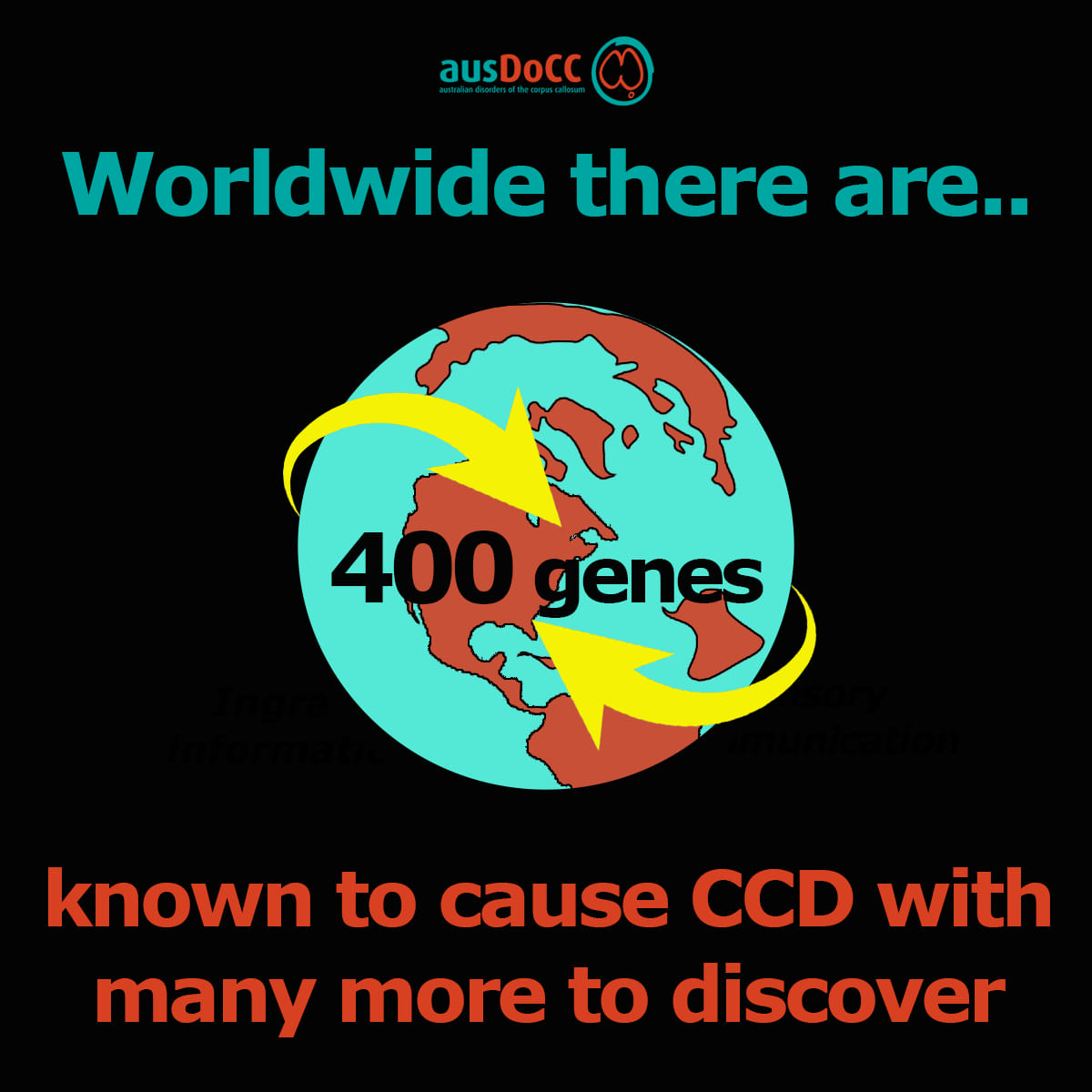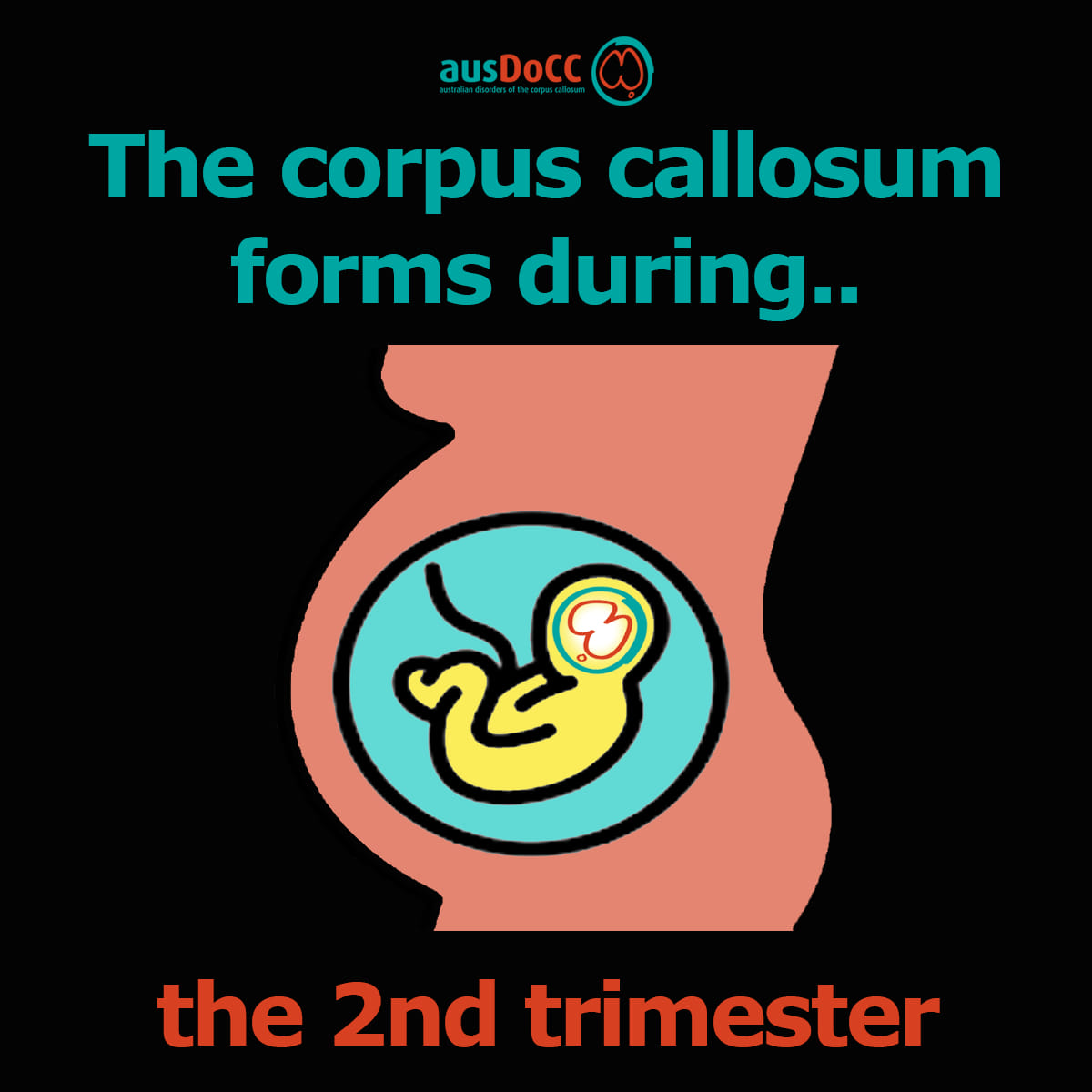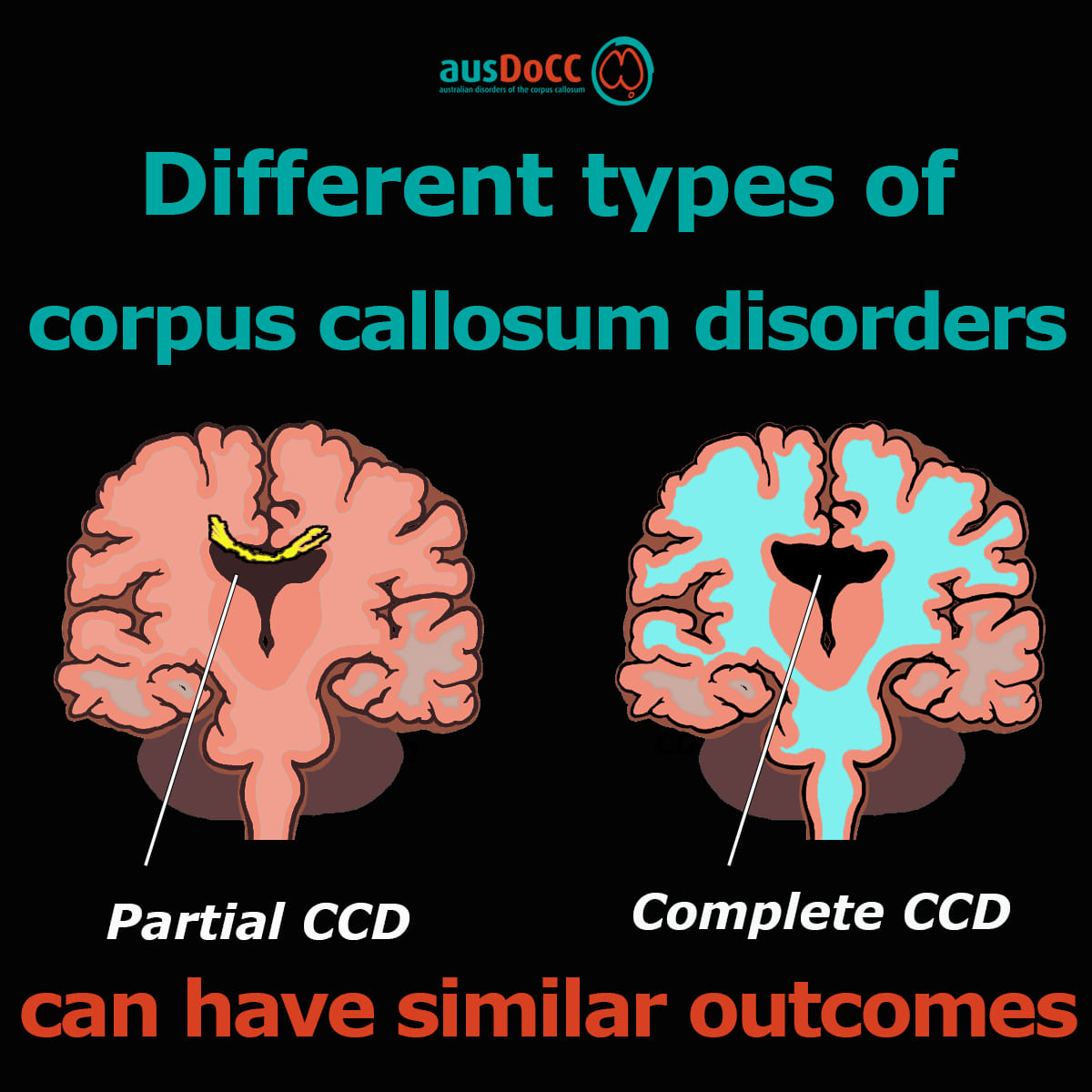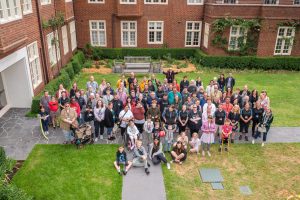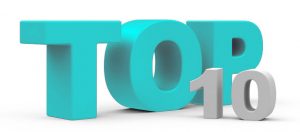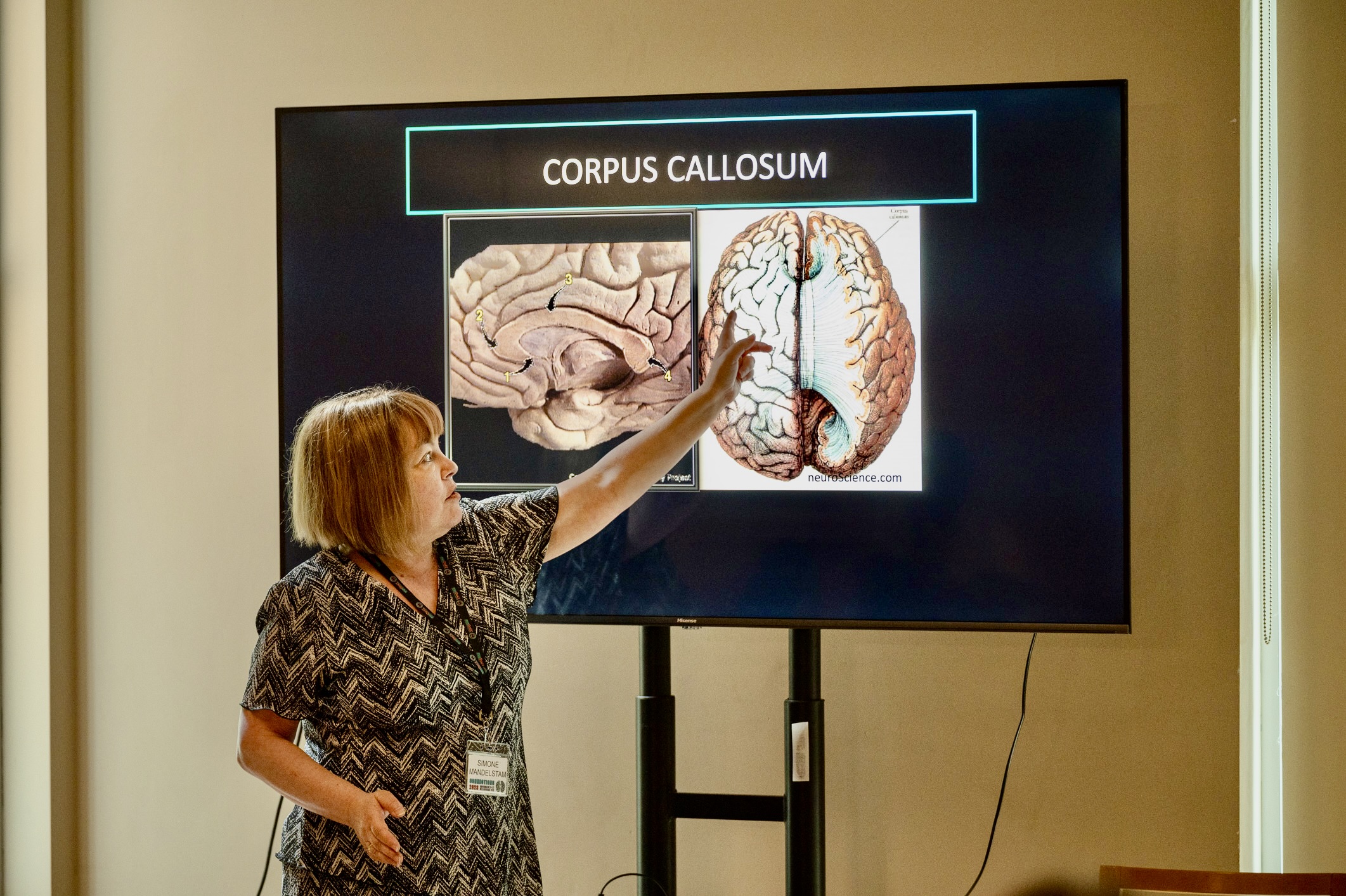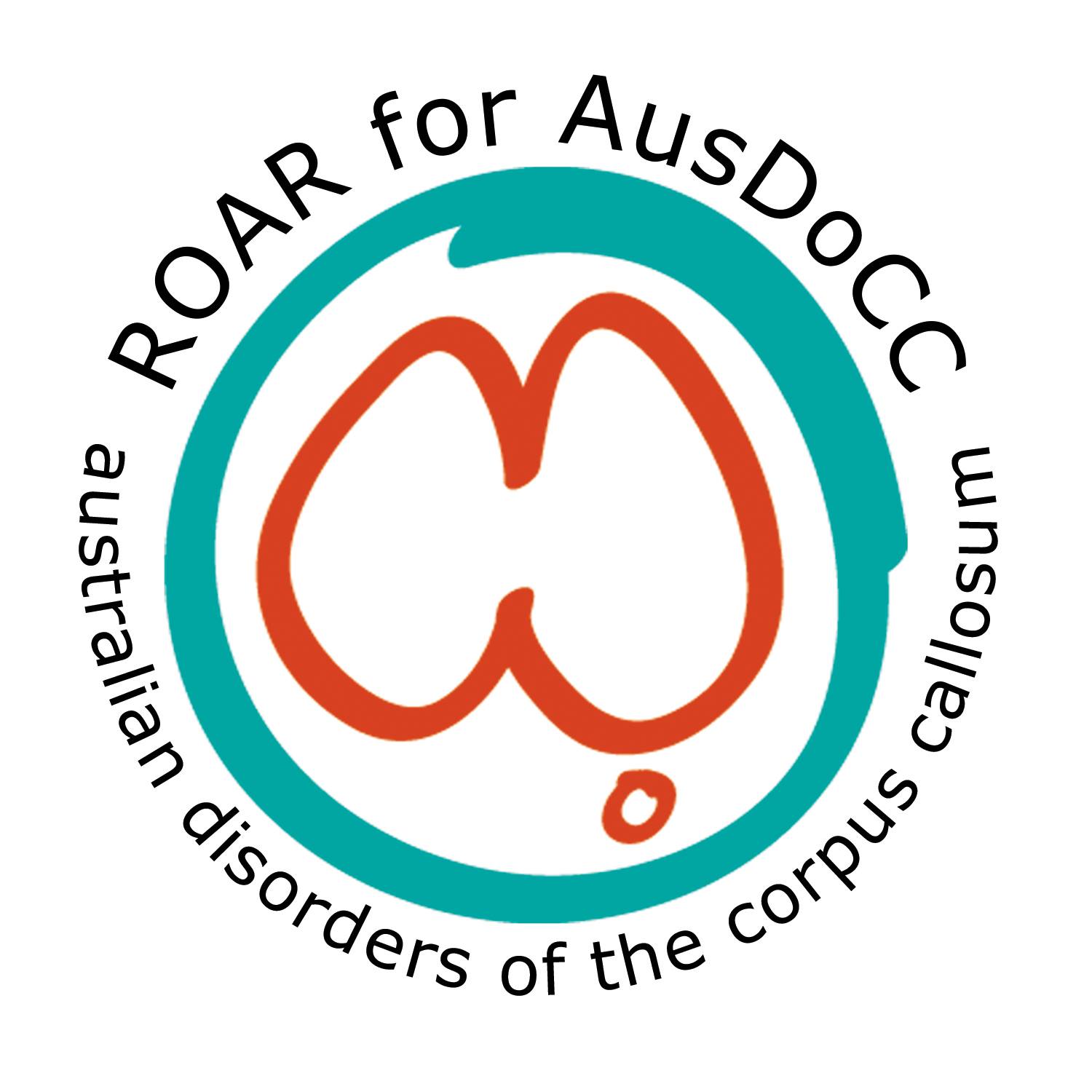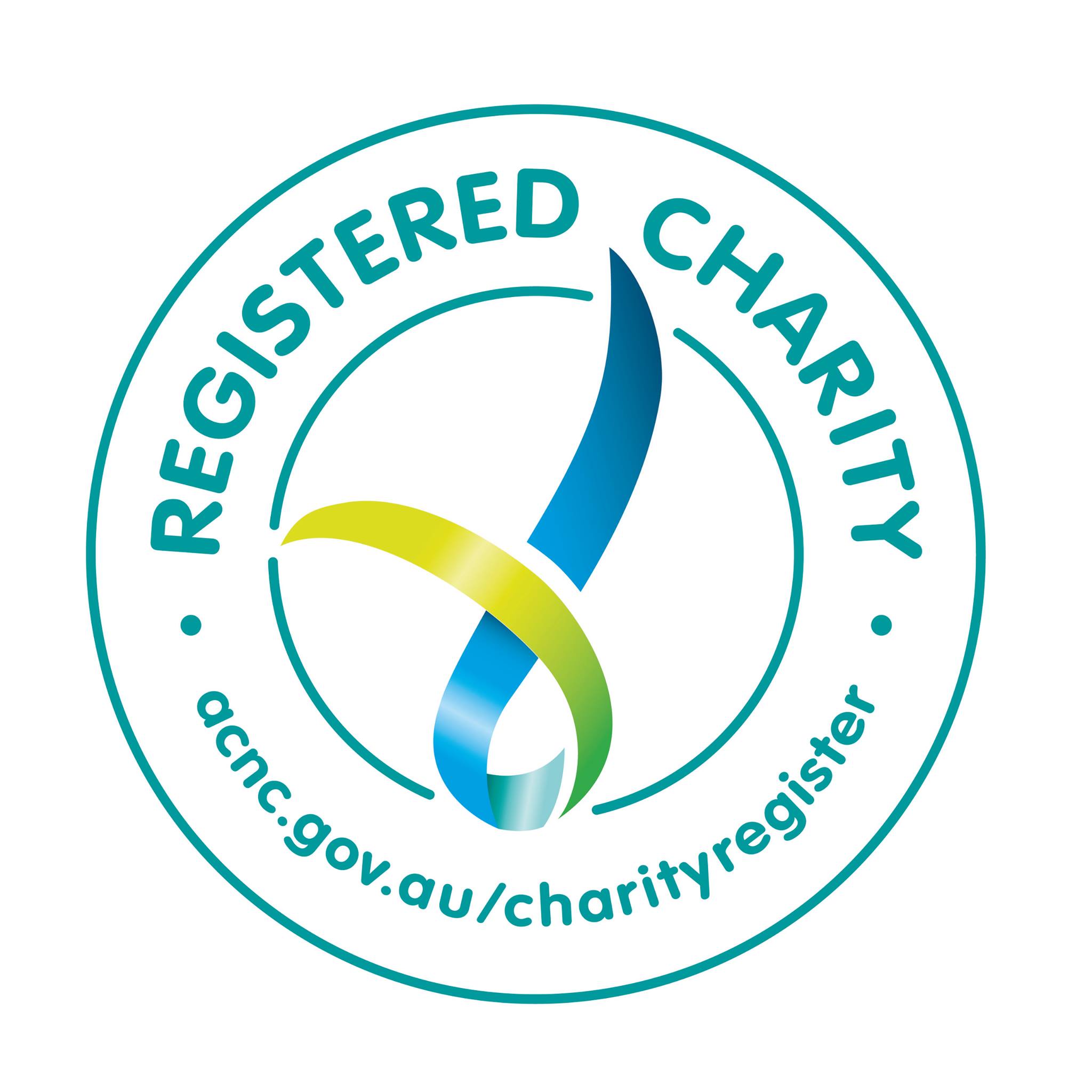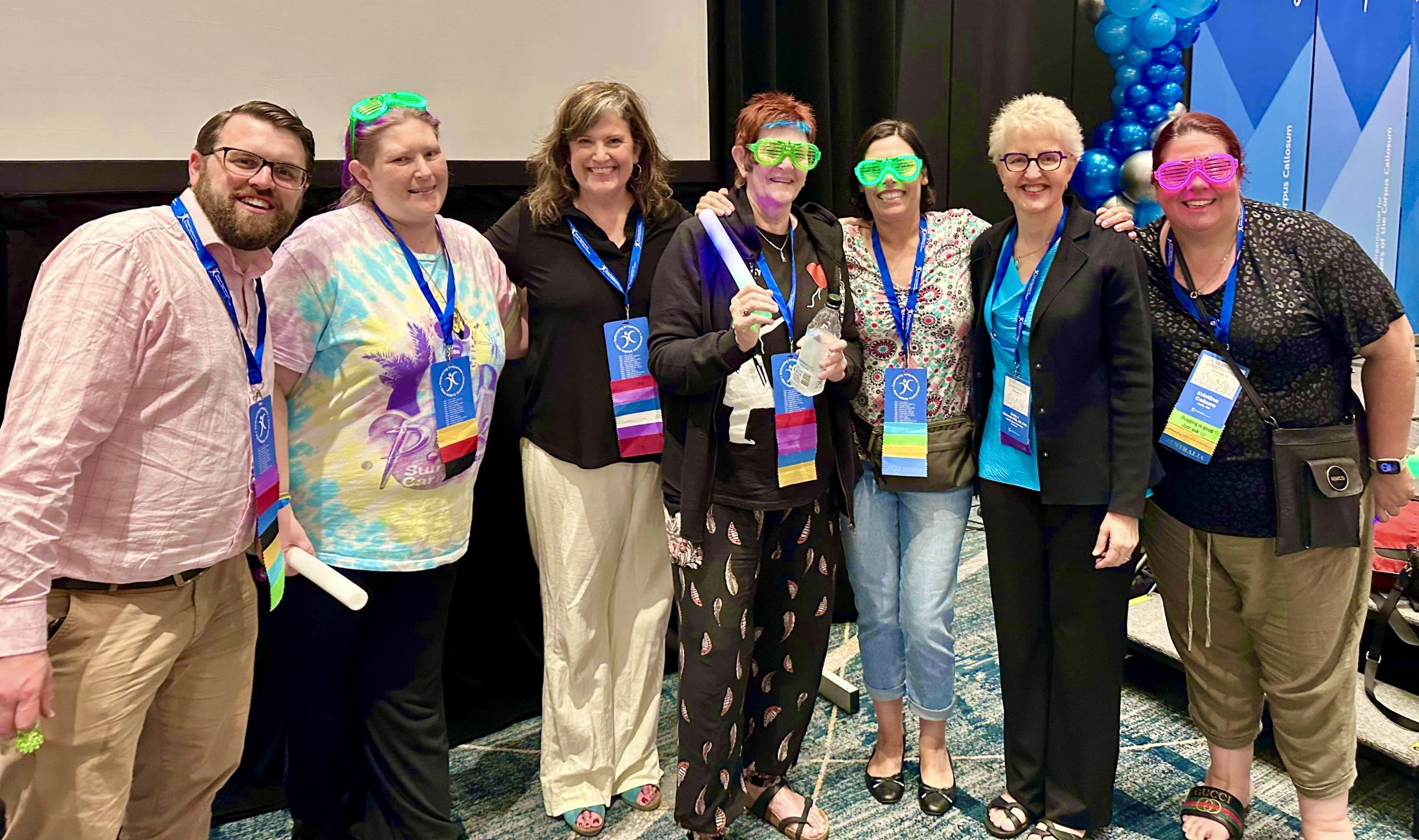*******
We ROAR for all people with a disorder of the corpus callosum -
Recognition, Opportunities, Access and Resources
*******
*****
About Corpus Callosum Disorders (CCD). Hear it from the best in the world.
4 AusDoCC interviews with Brigid O'Connell.
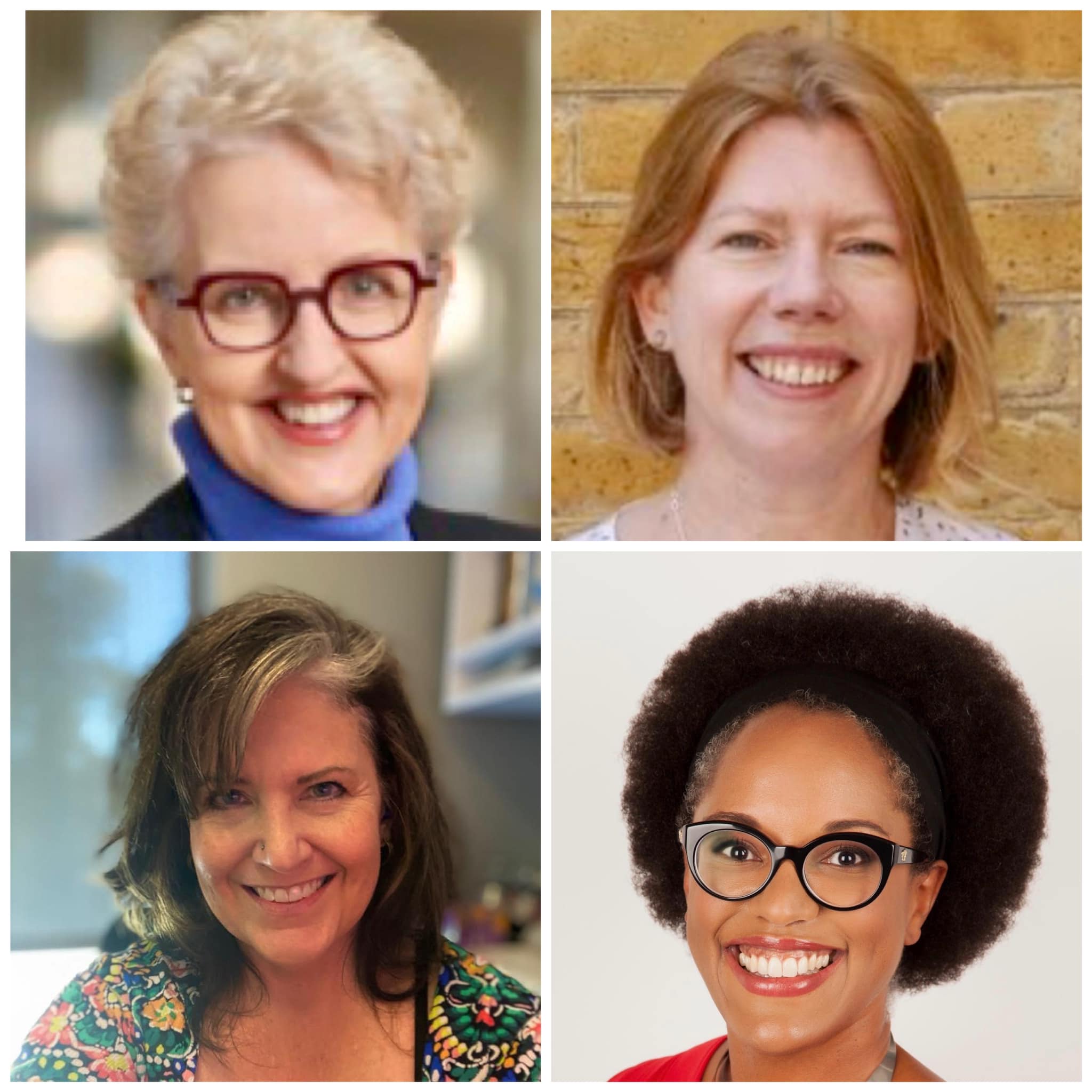
*The Psychosocial:
Dr Lynn Paul https://youtu.be/BgKyWTpKY7A
*Sexuality and Relationships:
Dr Natasha Alexander https://youtu.be/2IclkUuNt0M
*The Psychology:
Dr Rhonda Booth https://youtu.be/0gtXKi-TQL8
*The Science:
Prof. Linda Richards https://youtu.be/GZjQYlYpAvs
Connections 2023
A Wonderful mixing of people and minds
for all things corpus callosum
Subscribe to our youtube channel for fabulous videos about Connections, our events, our CCD community and all things Corpus Callosum.
******
Since April 11, 2012
In 2022, AusDoCC turned 10. We are proud of all the achievements as a 100% volunteer operated organisation.
We appreciate your support, please click here to make a donation.
Please click here to see our 2022 AusDoCC Community slide show - 10 years in 10 minutes.
*****
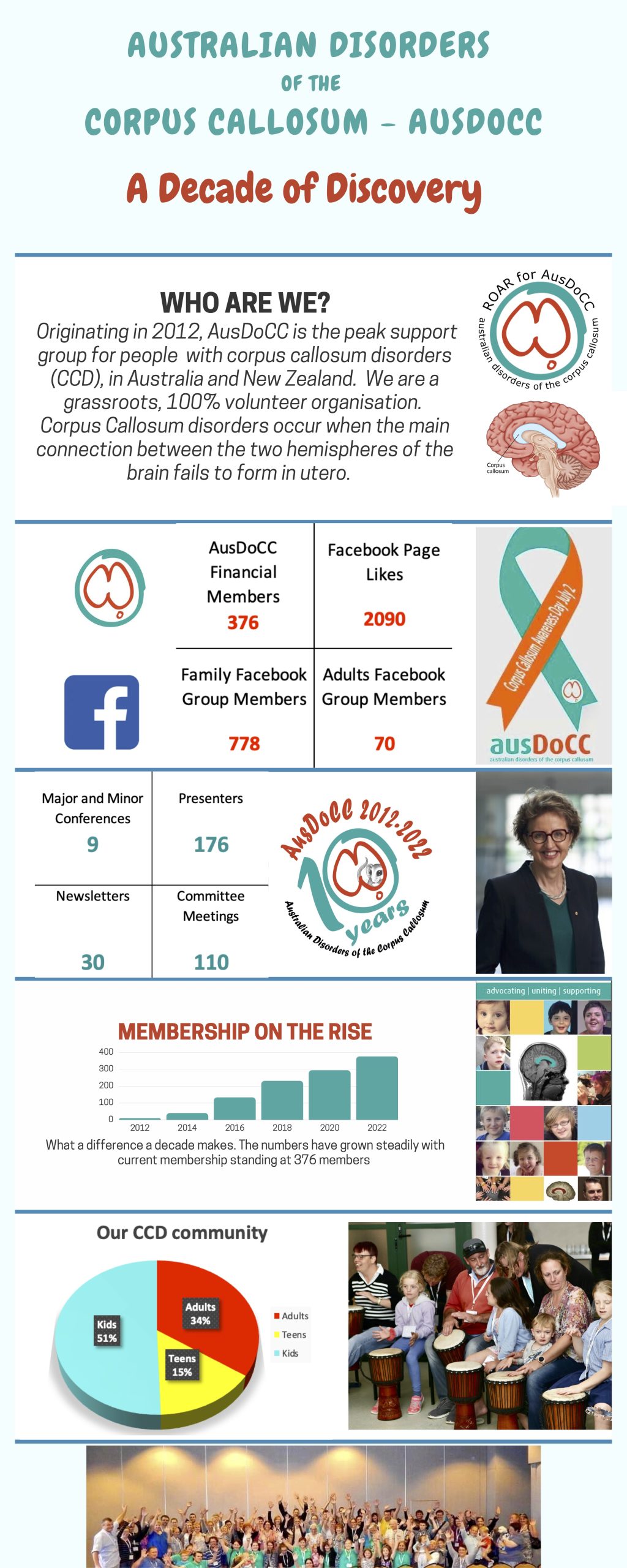
*****
Meet your CCD mates in person
Melbourne, Perth, Brisbane, Adelaide, Sydney AusDoCC Family meetups.
Watch this space
****
Click here to meet Edna, the fat tailed dunnart.
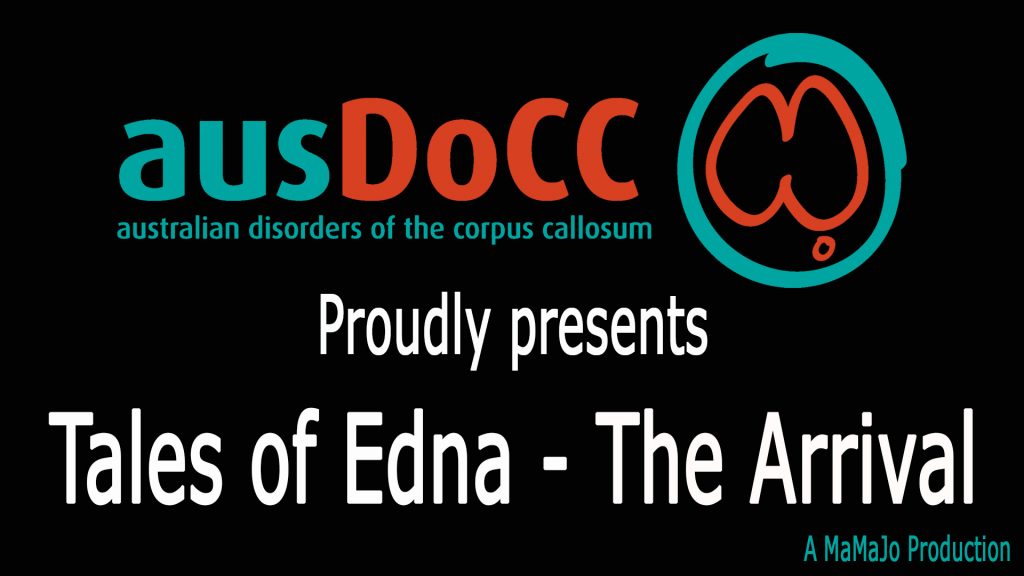 *****
*****
My People
In 2022, 25 adults with a CCD gathered from all corners of Australia and NZ for the 3rd My People conference, in Melbourne.
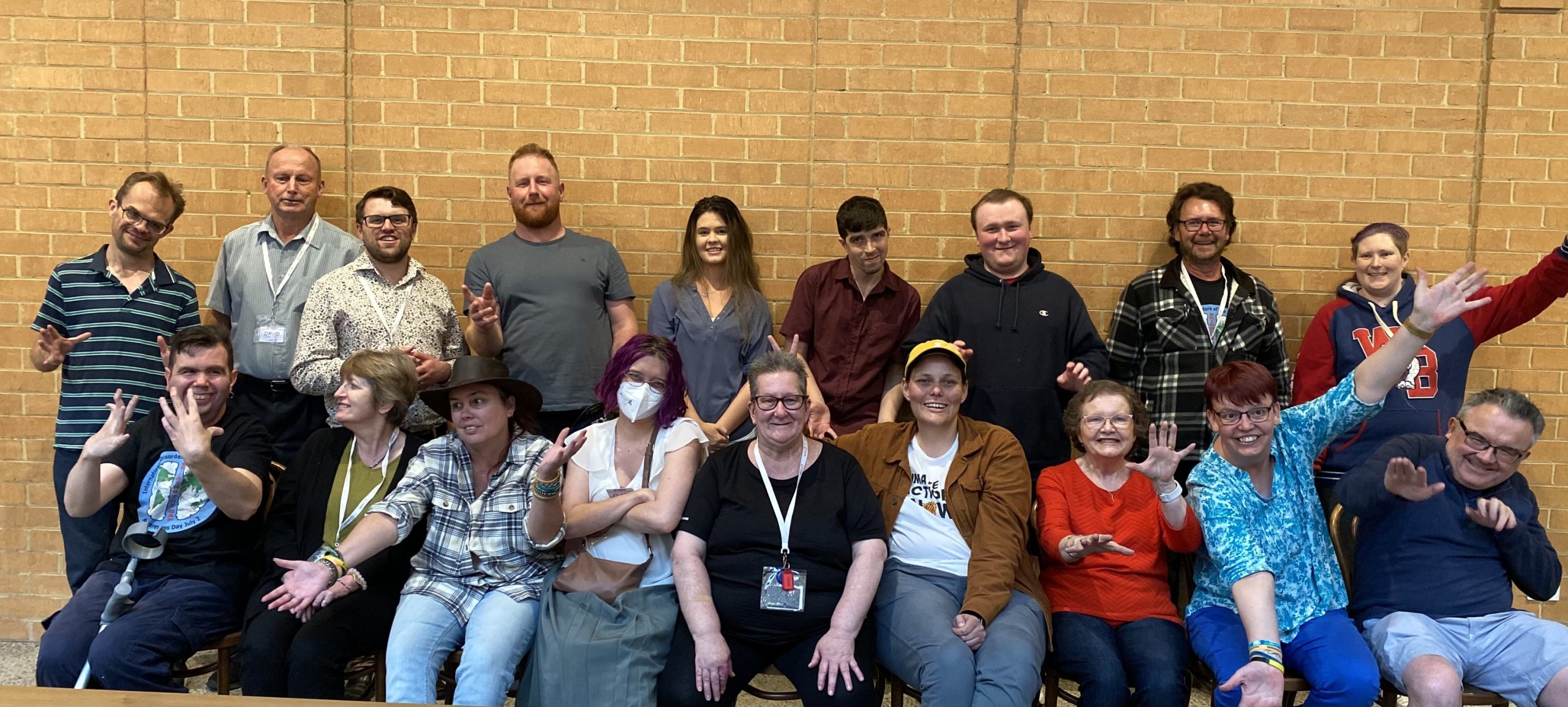
****************
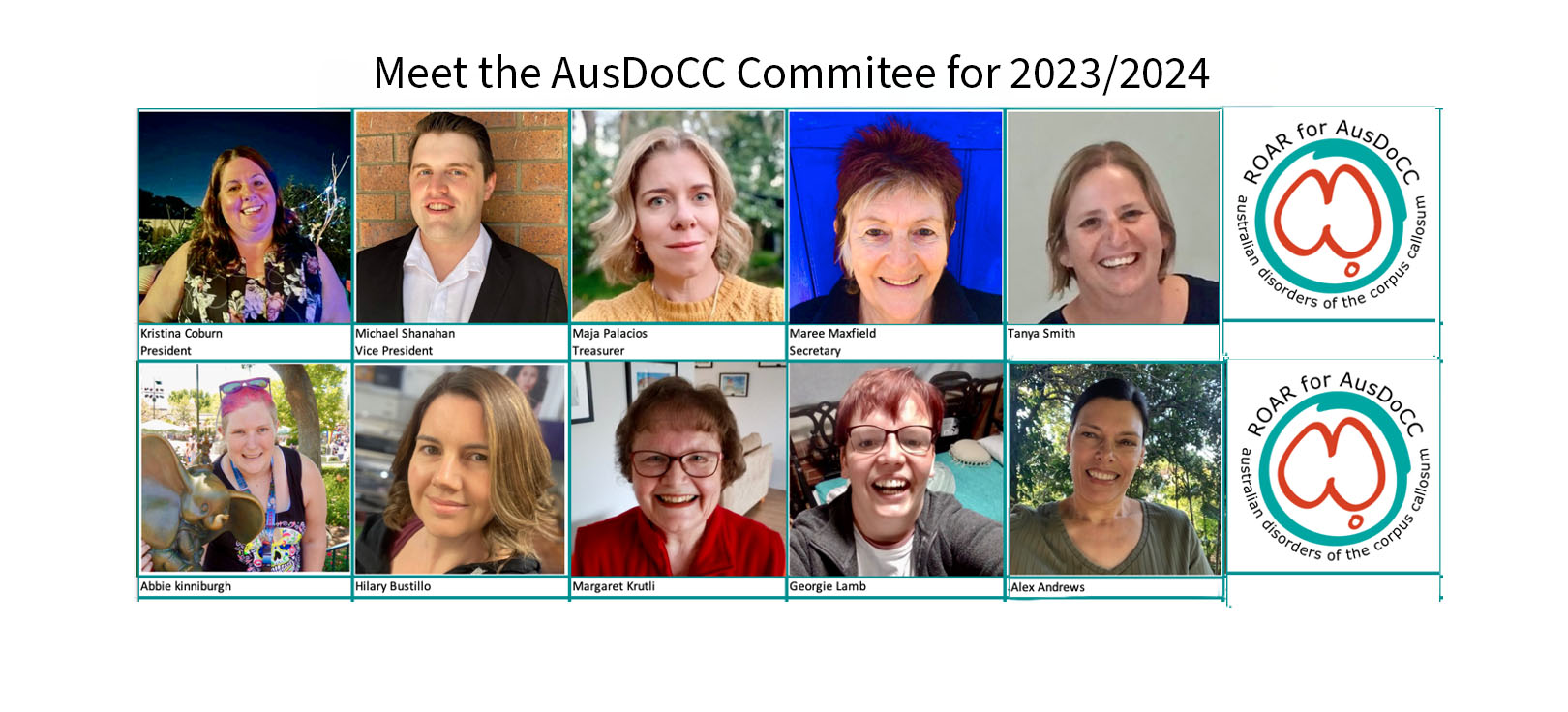
Commitee 2023/24
Education
Explaining a CCD to your child's teacher. click here for a helpful resource
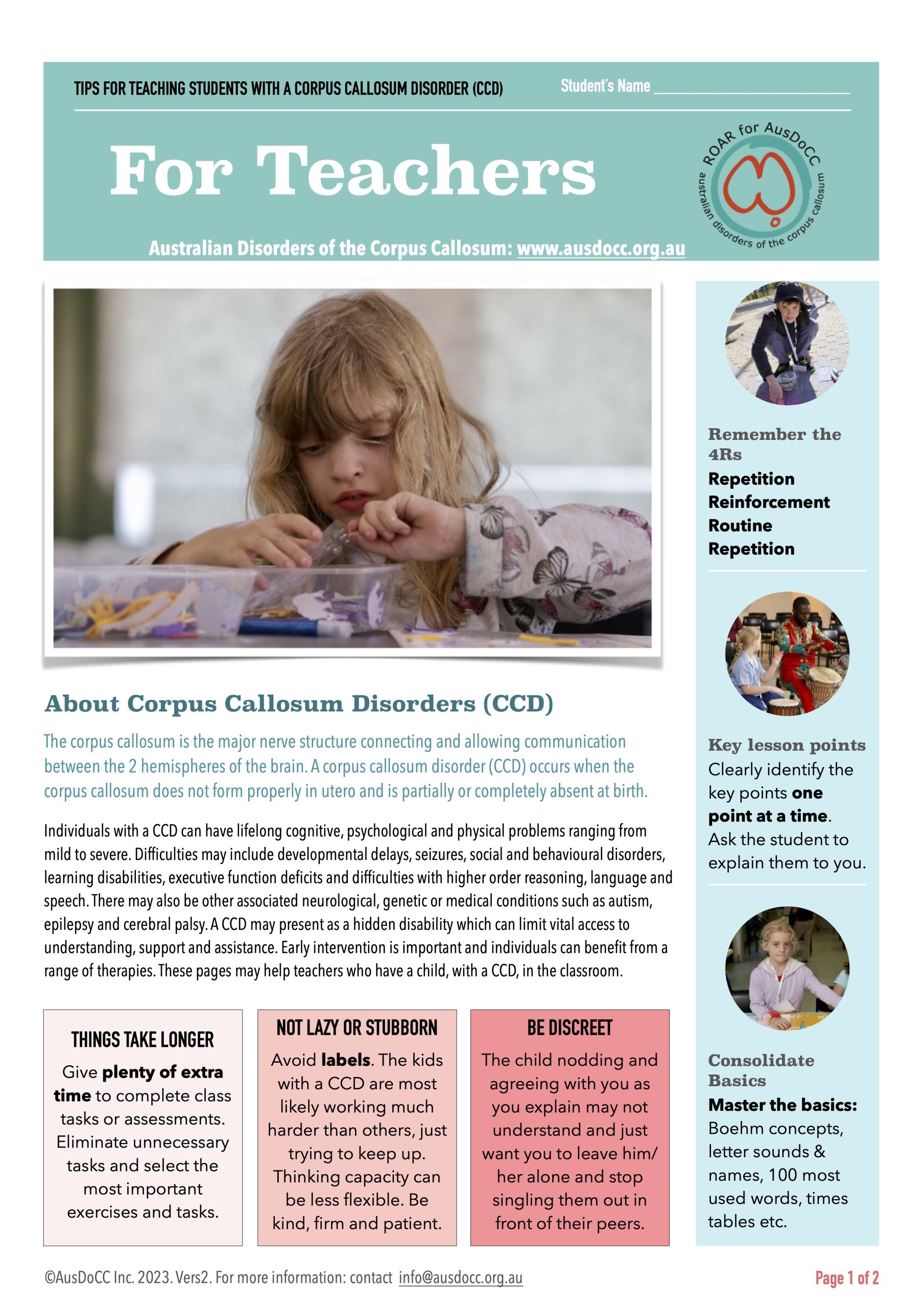
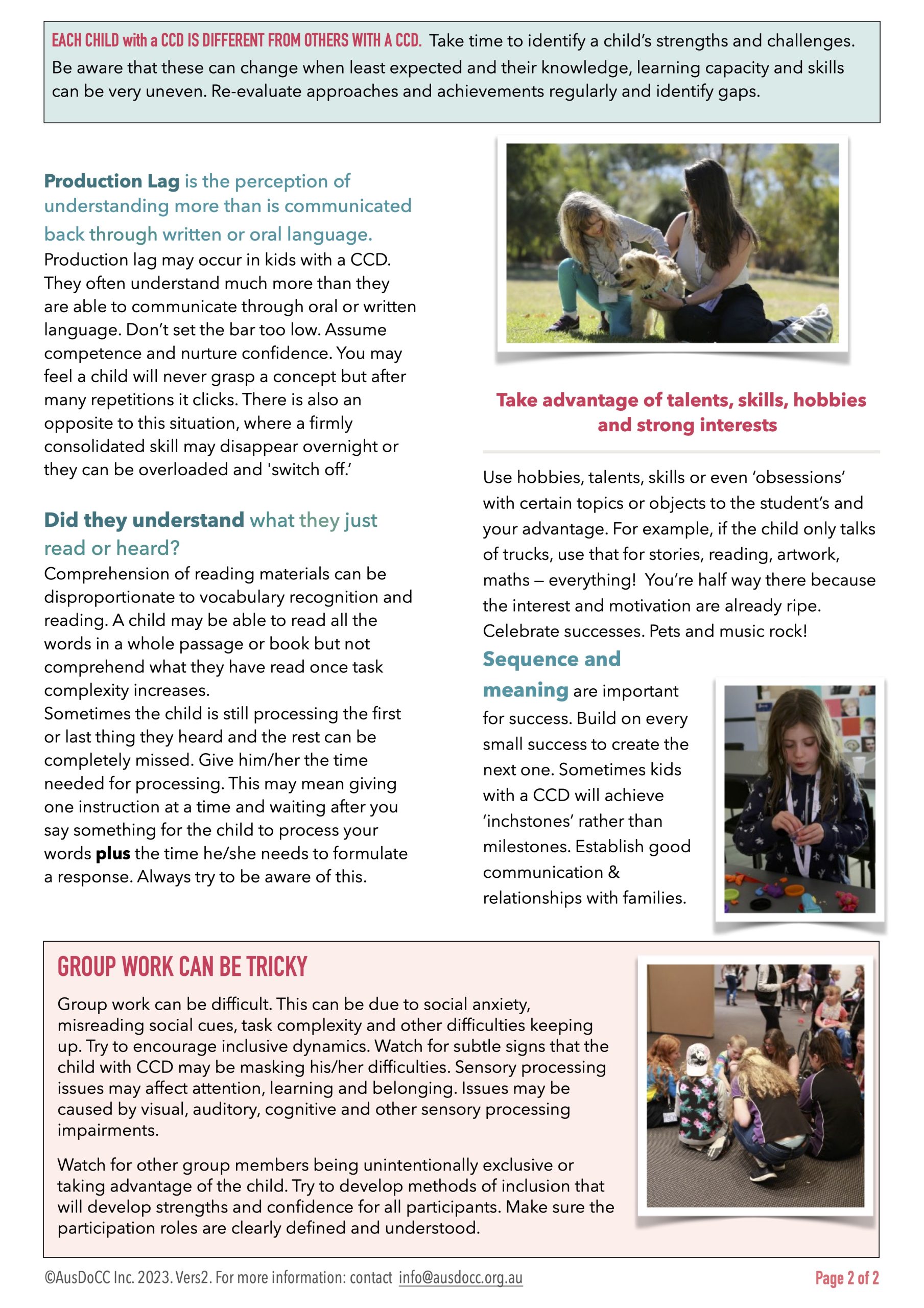
**********************************
Resources
TEN TOP TIPS for DCC - covering life stages from pregnancy to adulthood
Brain Sells Shop
Edna, our mascot, is a fat tailed dunnart and has no corpus callosum. Buy an Edna here
Visit the AusDoCC shop https://www.ausdocc.org.au/shop to buy caps, tatts and much much more
********************************
AusDoCC Vision
To ROAR for
Recognition, Opportunities, Access and Resources
for everyone with a disorder of the corpus callosum.
What is a disorder of the corpus callosum?
The corpus callosum is the major connection between the two hemispheres of the brain. A disorder of the corpus callosum (DCC) occurs when the corpus callosum, the major connecting structure between the two hemispheres of the brain, is partially or fully absent at birth. Disorders are often collectively referred to as ‘agenesis of the corpus callosum’ or ‘ACC.'
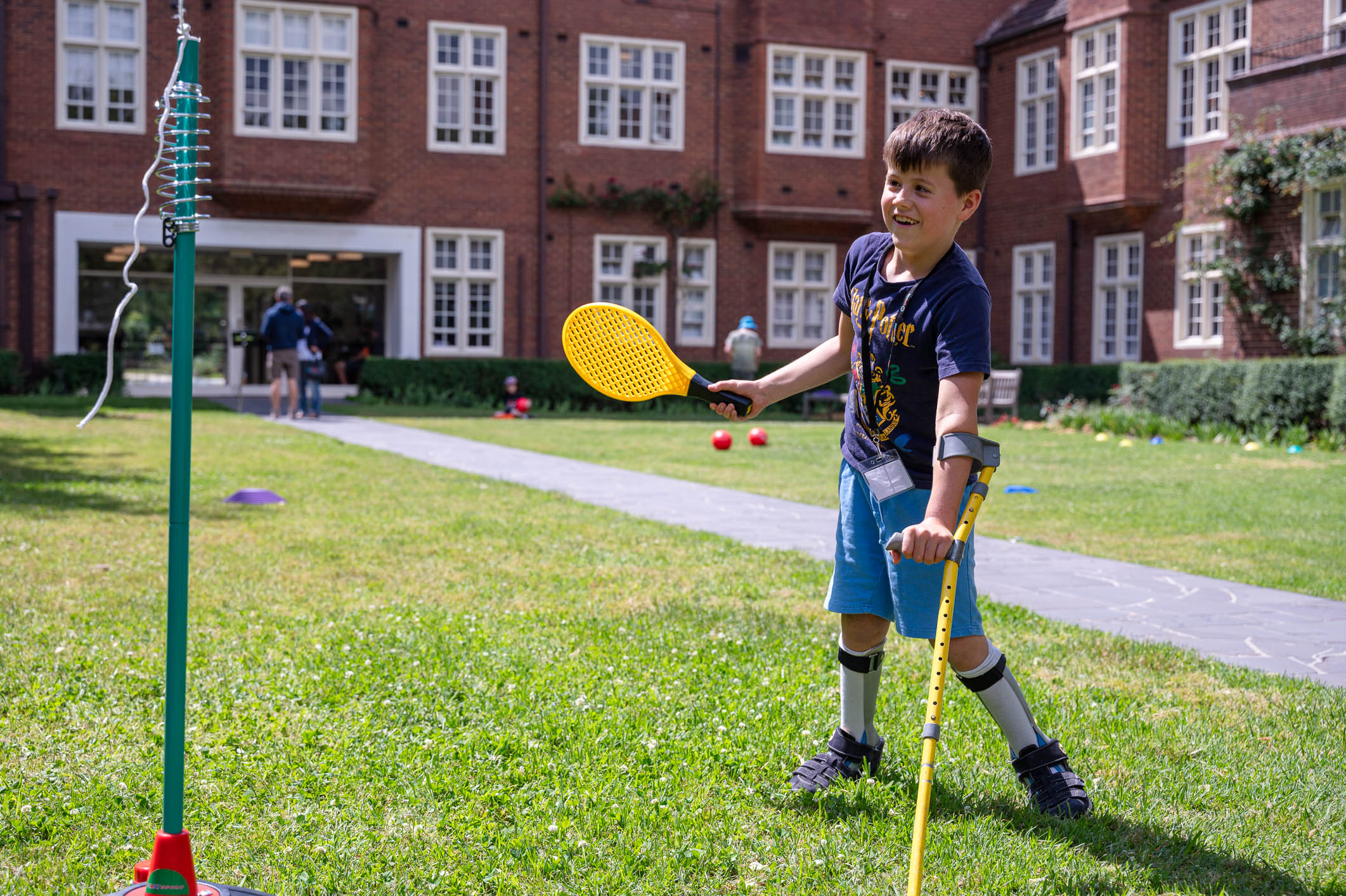
Our Stories
When a child is diagnosed with a disorder of the corpus callosum (DCC) parents are often told to 'wait and see' as the impacts are many and varied and range from mild to severe. When an adult is diagnosed, it may explain a lifetime of medical puzzles. All our stories are different. Through sharing our stories, we can see these differences and also the similarities.
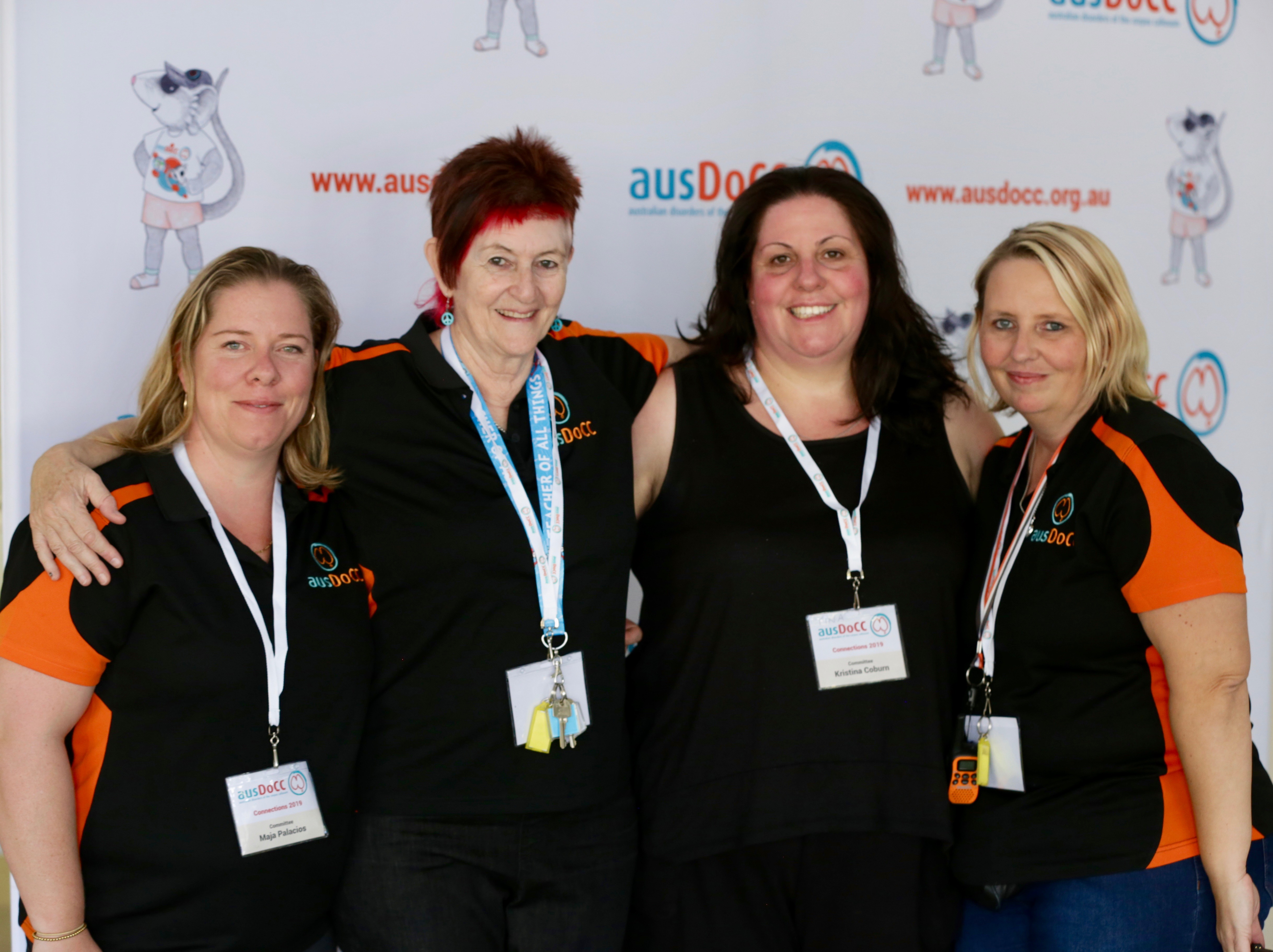
AusDoCC history
AusDoCC Inc. was created by a group of mothers of children with a disorder of the corpus callosum (DCC) in 2012. It has since expanded to include adults with a DCC, partners and grandparents. Through lived experience we aim to uphold our vision to ROAR for AusDoCC for Recognition, Opportunities, Access and Resources.

